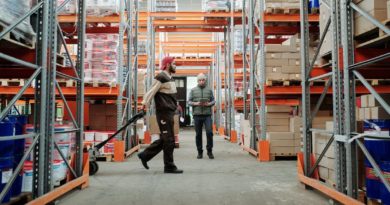2010 – Early but Sporadic Signs of Recovery
Jones Lang LaSalle presents its latest edition of quarterly market reports – CEE City Reports Q4 2009. The CEE City Reports cover the main trends in the economy and demand and supply in the investment, office, retail, industrial, hotels and residential markets. We are also pleased to present the first edition of the Zagreb City Report, in cooperation with its alliance partner Viridis Edificium, in Croatia.
John Duckworth, Managing Director of Jones Lang LaSalle in CEE comments: “2010 has finally come around and in most part, we can happily say goodbye to a rather difficult and challenging 2009. We do expect 2010 market conditions to improve across the CEE region for all sectors, although this will happen slowly throughout the course of the year and continue into 2011. Markets in the CEE region have each been affected in different ways and at different levels of severity. Some markets were hit hard during their emerging stages whilst others were affected during their maturing phases. Either way, Jones Lang LaSalle has continued to find new ways to help their clients and partners to achieve their goals”.
Mr Duckworth also added: “Across Europe, investor and occupier sentiment continues to improve and is driving activity for a specific band of prime real estate. Development pipelines continue to be limited as financing remains difficult to obtain and developers are required to secure significant pre-lease levels for all asset classes before financing and construction is granted. Occupier activity across all sectors has slowed in 2009 compared to previous years as similar financing issues prevent or delay relocation and expansion plans. Partially as a result of this, we have recorded an increased level of renewals or renegotiation activity, particularly in the office markets. Falling rental levels are beginning to bottom out in most of the core CEE markets and we expect stability to fully return throughout 2010”.
Ferenc Furulyás, Managing Director of Jones Lang LaSalle Hungary added: “The 2009 office supply in Budapest will be absorbed slowly by a recovering leasing market. As a consequence, the fall in rents which mainly characterise the non central districts of the city, will slow down or stop. By mid 2011, banks should also get less risk averse and financing should get easier but will not be anywhere close to the levels witnessed in 2006-2007. As of today there is no sign of improving bank financing, the banks are only willing to provide finance for prime buildings with prime location, as the cash-flow of such assets are more secured. The required equity is also twice or three times as much as what was necessary 2 years ago as LTV levels moved from 80% to 50% of the project value.
Poland’s economy was possibly the only country in Europe, to have not sunk into a recession throughout 2009, which was a great success story amongst so much negative news. Other countries in the region were not so fortunate, again having been affected at different levels of severity, but, are all forecast to rebound relatively quickly during 2010 and into 2011. That said, the journey towards a full and healthy recovery in real estate will not come quickly and market players, whether they be Investors or Developers, Landlords or Tenants, will all have been reviewing and renewing their strategies for 2010 and beyond.
The lack of liquidity and the fall in positive sentiment that has affected CEE over the past 12 months, is now slowly changing. We have noticed a return of investors to CEE with several transactions taking place in the office, retail, logistics and hotels sector accounting for approximately €1.93 billion in 2009 in the core CEE markets (Czech Republic, Hungary, Poland and Romania). Total investment volume across these core CEE markets amounted to €4.2 billion in 2008 compared to a volume of almost double in 2007 with 7.4 billion.
Leasing market conditions are currently in favour of occupiers across most sectors. Many occupiers have had to delay or cancel relocation or expansion plans as a result of the crisis. Despite the recent positive news in the global economy, this will still take some period of time to work through into actual business confidence.
































